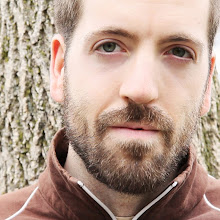So, as to take a break from writing this durn treatment, I'm going to try my hand at a little "From the Writers Den" thing. Time for a peak in the, assuredly, exciting mind of somebody who usually gets away with calling himself a writer!
SCRIPTIN' FANCY-LIKE: Part 1
 Now, I've taken a couple of courses with the CSTC, nabbed myself one of those fancy shmancy degrees (English w/Honors, minor in Film Studies) and have generally been writing fiction in one form or another since I was able to speak (at which point I apparently dictated a strange tale to my mom about numerous technicoloured peoples, God and lots of nuclear explosions. Also, China?). Though all these things have definitely contributed to whatever level of skill I have, I wouldn't think of them first.
Now, I've taken a couple of courses with the CSTC, nabbed myself one of those fancy shmancy degrees (English w/Honors, minor in Film Studies) and have generally been writing fiction in one form or another since I was able to speak (at which point I apparently dictated a strange tale to my mom about numerous technicoloured peoples, God and lots of nuclear explosions. Also, China?). Though all these things have definitely contributed to whatever level of skill I have, I wouldn't think of them first.Then we have the time-worn "You learn by doing!" maxim to consider. It is certainly true and I do place this high on my list of Sayings With Something To Them. If all you do is talk about what you'd like to write, then that is all you are - a talker. But just squeezing out shit after shit after shit won't make you a good writer either. There is more to quality, I'd like to think, then quantity!
My current theory as to the necessary "third component" is the willingness to experiment with your writing process and to challenge what you do without mercy (this is not to be confused with being really disparaging about what you do, because you have low self-esteem?). Whatever your exact method, it has to be flexible because you yourself are always subject to change - even if it is just your general mood as it fluctuates throughout the day.
For the sake of brevity and focus, I am going to look at how I wrote my last script (Tonight We Fall In Love) versus how I am writing my current script (Archbrook).
With "Tonight..." I didn't start with a big concept, theme or historical era that I wanted to explore. Simply enough, I had noticed how much the sense of humor that myself and a handful of friends shared in high school seemed to stand out and really enterain people of all shapes and sizes. I thought that if I could try to capture that in a story, then I might be able to do something others could really enjoy.
So I tried to write an engaging dialogue between two characters having an evening drink somewhere. At first my mind was flooded with questions about "What do they look like? Where are they? What are the camera movements?" etc etc. Though I do not discourage multi-tasking, trying to take on everything at once can often lead to serious writers block - particularly in your very early days.
So I shamelessly set it somewhere in real life that I regularly went to, made one character look like me and the other like my oldest friend, let whatever pictures popped into my head dictate what the camera was doing and then got the fuck on with it. But you cannot just have people make jokes back and forth, so I decided to give them a topic. How novel!
But man there are sure a lot of things for people to talk about. I tried picking something at random (Dogs, due to one going past my apartment at the time) and that bombed pretty bad. Looking back, I know what I probably should have tried to think of a topic which I could work a lot of jokes out of - particularly since, at that point, I was just trying to write a scene and not a feature length script. The problem at the time was, frankly, that I didn't give a shit about what the characters were talking about. I got fed up and may have even been heard to say 'The hell with dogs!". That's just the kind of monster I am.
After a few minutes of twiddling my thumbs and being fed up, I did what I usually do when I'm fed up with anything. I turned it around and challenged myself, my fed-uppedness, by asking "So okay, what do you care about? What are you passionate enough about to stay interested in and what these two characters might say about it?". At the time, for reasons I won't expand upon 'less I turn this website into precisely the reason I viciously mocked blogs for so many years, I was pretty uppity about (in)authenticity in people's romantic dealings - particularly as it related to expectations and reactions that clearly were common tropes from film and television...
Next thing I knew, I had twelve pages of chatter and a burning desire to expand it into a feature length script. I eventually broke those pages up into pieces which I plugged into later parts of the full story, keeping only what I wanted to use to establish the main characters and the premise so that this conversation at "the Mercury" could be the opening scene.
Looking at how much I've written and how much more I could write, I think I'm going to stop here and do another installment sometime in the near future. Plus, I am hungry. *Plus* I should get back to my treatment.
Anywho, I hope this was of some interest and/or use!
Now if you'll excuse me, I'm off to cook some delicious dinner.







